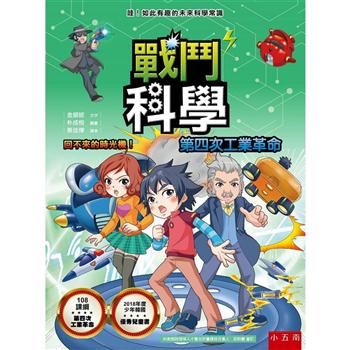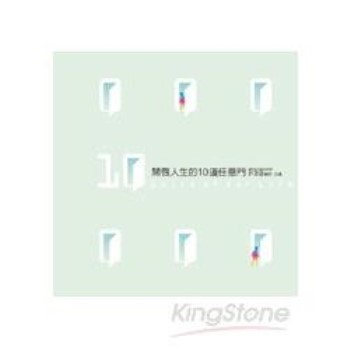This book explores the intricate relationship between hydrology and urban water provision. Authored by experts in the field, this book offers a comprehensive exploration of the challenges and solutions associated with urban water supply management in the context of hydrology. It covers topics such as water sources, treatment technologies, distribution systems, and sustainable water management practices. With its meticulous analysis and practical insights, this book equips professionals, researchers, and policymakers with the knowledge necessary to address the growing demands of urban water supply in an era of climate change and urbanization.
| FindBook |
有 1 項符合
Hydrology and Urban Water Supply的圖書 |
 |
Hydrology and Urban Water Supply 出版社:Springer 出版日期:2024-11-16 語言:英文 規格:精裝 / 普通級/ 初版 |
| 圖書館借閱 |
| 國家圖書館 | 全國圖書書目資訊網 | 國立公共資訊圖書館 | 電子書服務平台 | MetaCat 跨館整合查詢 |
| 臺北市立圖書館 | 新北市立圖書館 | 基隆市公共圖書館 | 桃園市立圖書館 | 新竹縣公共圖書館 |
| 苗栗縣立圖書館 | 臺中市立圖書館 | 彰化縣公共圖書館 | 南投縣文化局 | 雲林縣公共圖書館 |
| 嘉義縣圖書館 | 臺南市立圖書館 | 高雄市立圖書館 | 屏東縣公共圖書館 | 宜蘭縣公共圖書館 |
| 花蓮縣文化局 | 臺東縣文化處 |
|
|
內容簡介
作者簡介
Ethem Karadirek graduated from the Department of Environmental Engineering at Akdeniz University, Türkiye, in 2005, and obtained his doctoral degree from the same institution in 2015, specializing in urban water supply systems. He conducted research at the University of Cincinnati, USA, from 2012 to 2013, focusing on hydraulic and water quality modeling of water distribution systems. He was appointed Associate Professor in Environmental Engineering at Akdeniz University in 2020, where he has since been actively involved in teaching and research. His areas of expertise include hydraulics, fluid mechanics, water supply, design of wastewater collection systems, water losses, water resources engineering, and environmental systems analysis. He is currently leading national research projects on water loss management in water distribution systems and has authored numerous research papers published in international peer-reviewed journals and conference proceedings.
Mehmet Emin Aydın has studied Civil engineering at Selçuk University in Konya, Türkiye (1980-1985) and received his PhD in 1993 in the field of drinking water treatment at Civil Engineering Department of Loughborough University of Technology in England. He was appointed as Assoc. Prof. Dr. in Environmental Engineering of Selçuk University in 1997. In 2003, he was appointed as a full Professor in Environmental Engineering of Selçuk University. Then, in 2012, he was appointed as a full Professor in Necmettin Erbakan University in Konya, Türkiye. He is working as full Professor in Civil Engineering of Necmettin Erbakan University since 2018. His teaching and research cover water supply, wastewater disposal, water pollution, water and wastewater treatment, ecotoxicology, PAHs, PCBs, pesticides, pharmaceuticals and illicit drugs in environment. Prof. Dr. Aydın published 232 papers in international peer-reviewed journals and proceedings volumes; 82 presentations in National symposiums; 14 international book chapters, 6 book editorships and co-editorships.
S. Yurdagul KUMCU graduated in 1992 at Selçuk University of Konya, Türkiye. She worked on labyrinth spillways and scour measurements around the bridge abutments in Middle East Technical University (METU) during her Master’s and PhD studies, respectively. After that, she worked for State Hydraulic Works as a research engineer in the Hydraulic Laboratory of the Technical Research and Quality Control Department. Later, she accomplished a comparative study with University of Mississippi in U.S. on flood control and management, as well as sedimentation problems using NCCHE computer model and physical scale models as a Scientific and Technological Research Council of Türkiye Foundation Scholar. Currently, she has been working for Necmettin Erbakan University as a Professor. Her research fields cover hydraulics, fluid mechanics, hydrology, sediment transport, water resources and sustainability, physical model studies and similarity.
Amitava Bandyopadhyay studied Chemical Technology at the University of Calcutta and Chemical Engineering at the Indian Institute of Technology (IIT), Kharagpur, received his PhD from the IIT, Kharagpur in 1996. Currently he is a Full Professor of Chemical Engineering at the University College of Science & Technology, University of Calcutta since 2015. Prior to his university position for the last 15 years, he spent more than 10 years in a senior position at the West Bengal Pollution Control Board, the state regulatory agency responsible for implementing various environmental rules and regulations. He also spent 8 years working with other academic institutions and with organizations addressing environmental engineering and process formulations. He has been a Visiting Faculty Member of School of Environment, Resources and Development, Asian institute of Technology (AIT), Bangkok, Thailand under the Faculty Secondment Programme nominated by the MHRD, Government of India. His research fields cover air pollution control, air and water quality management, environmental impact assessment, air emission dispersion studies, solid waste management, process plant safety, wastewater treatment, CO2 capture and environmental jurisprudence under Indian regulatory regime. Besides, characterizing gas-liquid absorbers forms a part of his research areas.
Andreas Haarstrick studied Chemistry at the Technische Universität Braunschweig (1983-1989) and received his doctorate in 1992 in bioengineering. Since 2006, he is Professor for Bioprocess Engineering at the TU Braunschweig. His teaching and research cover modelling biological and chemical processes in heterogeneous systems, development of models predicting pollutant reduction in and emission behaviour of landfills, growth kinetics at low substrate concentrations under changing environmental conditions, Advanced Oxidation Processes (AOP), and groundwater management. Since 2012, he is the managing director of the DAAD exceed-Swindon Project dealing with sustainable water management in developing countries.
|










